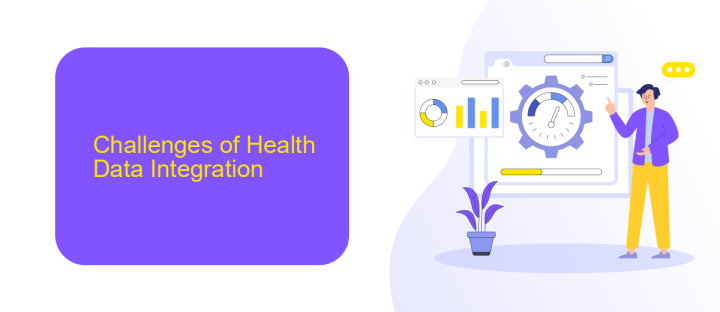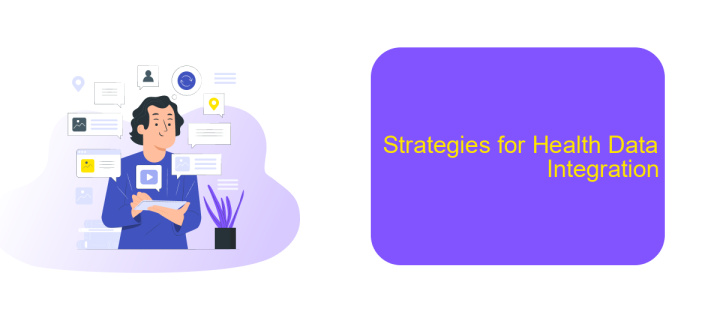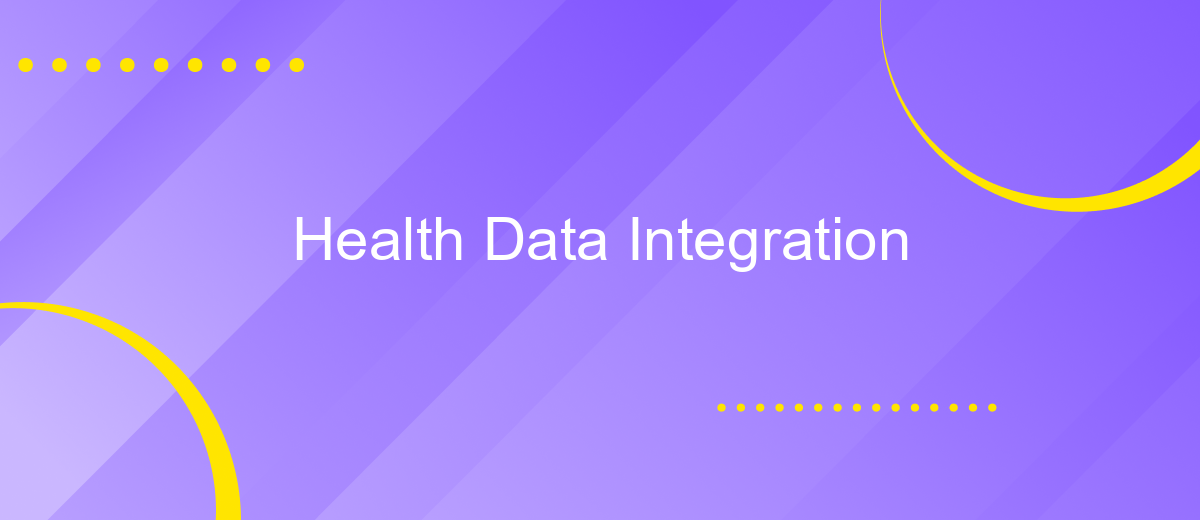Health Data Integration
Health data integration is revolutionizing the way healthcare providers manage patient information. By seamlessly combining data from various sources, it enhances the accuracy and efficiency of diagnosis, treatment, and patient care. This article explores the benefits, challenges, and future prospects of health data integration, shedding light on its crucial role in modern healthcare systems.
Introduction
Health data integration has become a pivotal aspect of modern healthcare systems, aiming to enhance patient care, streamline operations, and enable data-driven decision-making. The seamless integration of health data from various sources allows healthcare providers to access comprehensive patient information, leading to more accurate diagnoses and personalized treatment plans.
- Improved patient outcomes through comprehensive data analysis
- Enhanced interoperability between different healthcare systems
- Reduction in administrative burdens and operational costs
- Facilitation of real-time data access and sharing
One of the key tools facilitating health data integration is ApiX-Drive, a service that automates the integration process by connecting various healthcare applications and systems. By leveraging ApiX-Drive, healthcare providers can ensure that data flows seamlessly between different platforms, enabling a unified view of patient information. This not only improves the efficiency of healthcare delivery but also enhances the overall quality of care.
Challenges of Health Data Integration

Integrating health data from various sources presents numerous challenges, primarily due to the heterogeneity of data formats and standards. Different healthcare providers often use disparate electronic health record (EHR) systems, making it difficult to achieve seamless data exchange. Additionally, ensuring data privacy and security is paramount, given the sensitive nature of health information. This requires robust encryption methods and stringent access controls to prevent unauthorized access and data breaches.
Another significant challenge is the interoperability of health data systems. Many legacy systems are not designed to communicate with modern platforms, necessitating the use of middleware or integration services. Tools like ApiX-Drive can facilitate this process by automating data transfers and synchronizing information across different platforms. However, the initial setup and ongoing maintenance of these integrations can be resource-intensive, requiring specialized knowledge and continuous monitoring to ensure data accuracy and consistency.
Benefits of Health Data Integration

Health data integration offers numerous advantages for healthcare providers, patients, and the overall healthcare system. By seamlessly combining data from various sources, healthcare providers can make more informed decisions, leading to improved patient outcomes and enhanced operational efficiency.
- Improved Patient Care: Integrated health data allows for a comprehensive view of a patient's medical history, enabling more accurate diagnoses and personalized treatment plans.
- Enhanced Efficiency: Streamlined data management reduces administrative burdens and minimizes errors, allowing healthcare professionals to focus more on patient care.
- Cost Savings: By reducing duplicative tests and procedures, integrated health data can lead to significant cost savings for both healthcare providers and patients.
- Better Public Health Monitoring: Aggregated data from multiple sources can help in tracking disease outbreaks and evaluating the effectiveness of public health interventions.
- Interoperability: Services like ApiX-Drive facilitate seamless integration between various healthcare systems, ensuring that data flows smoothly and securely across platforms.
Incorporating integrated health data into healthcare practices not only enhances the quality of care but also contributes to a more efficient and cost-effective healthcare system. Tools like ApiX-Drive play a crucial role in achieving these benefits by enabling easy and secure data integration.
Strategies for Health Data Integration

Effective health data integration is crucial for improving patient outcomes and streamlining healthcare processes. The integration of diverse health data sources helps create a comprehensive view of patient health, facilitating more accurate diagnoses and personalized treatment plans.
One of the primary strategies for health data integration involves the use of standardized data formats and protocols. This ensures that data from various sources can be seamlessly combined and analyzed. Additionally, employing robust data governance frameworks is essential for maintaining data quality and security.
- Utilize standardized data formats (e.g., HL7, FHIR)
- Implement data governance frameworks
- Leverage integration platforms like ApiX-Drive
- Ensure compliance with data privacy regulations
Integration platforms such as ApiX-Drive can significantly simplify the process of connecting disparate health data systems. These platforms offer automated workflows and real-time data synchronization, enabling healthcare providers to focus more on patient care rather than data management. By adopting these strategies, healthcare organizations can enhance their data integration efforts, ultimately leading to better health outcomes.
- Automate the work of an online store or landing
- Empower through integration
- Don't spend money on programmers and integrators
- Save time by automating routine tasks
Future Directions in Health Data Integration
The future of health data integration lies in the adoption of more advanced technologies and streamlined processes. Artificial Intelligence (AI) and Machine Learning (ML) will play a pivotal role in optimizing data integration, enabling real-time analytics, and providing predictive insights. Blockchain technology is expected to enhance data security and ensure the integrity of health records, fostering greater trust among stakeholders. Additionally, the development of standardized protocols and interoperability frameworks will be crucial in facilitating seamless data exchange across different healthcare systems and platforms.
Services like ApiX-Drive will become increasingly important in this evolving landscape. ApiX-Drive offers automated integration solutions that simplify the process of connecting various health data sources, ensuring that information flows smoothly and accurately. By leveraging such tools, healthcare providers can focus more on patient care rather than technical challenges. As the industry moves forward, continuous innovation and collaboration will be essential to overcome existing barriers and unlock the full potential of integrated health data systems.
FAQ
What is Health Data Integration?
Why is Health Data Integration important?
How can I integrate health data from different systems?
What are the challenges of Health Data Integration?
How can automation help in Health Data Integration?
Do you want to achieve your goals in business, career and life faster and better? Do it with ApiX-Drive – a tool that will remove a significant part of the routine from workflows and free up additional time to achieve your goals. Test the capabilities of Apix-Drive for free – see for yourself the effectiveness of the tool.


